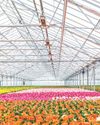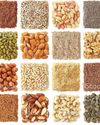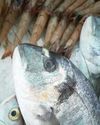
VIMAL KULSHRESTHA, President, Crop Protection, Hikal Ltd
Previously, the production of agrochemicals in India heavily relied on imports of raw materials and intermediates. In the context of the Indian agrochemical industry, backward integration involves acquiring or building the necessary infrastructure and resources for producing raw materials used in agrochemical production.
Need for Backward Integration: During the pandemic, the lack of these supplies and port congestion caused significant delays in purchases which had a profound impact on manufacturing and export patterns. Consequently, manufacturers and suppliers are re-evaluating their production and distribution strategies to overcome potential challenges. India is home to numerous domestic and global agrochemical companies, while also importing a considerable amount of agrochemicals. Backward integration offers several benefits for the agrochemical industry.
هذه القصة مأخوذة من طبعة AgroSpectrum India July 2023 من AgroSpectrum.
ابدأ النسخة التجريبية المجانية من Magzter GOLD لمدة 7 أيام للوصول إلى آلاف القصص المتميزة المنسقة وأكثر من 9,000 مجلة وصحيفة.
بالفعل مشترك ? تسجيل الدخول
هذه القصة مأخوذة من طبعة AgroSpectrum India July 2023 من AgroSpectrum.
ابدأ النسخة التجريبية المجانية من Magzter GOLD لمدة 7 أيام للوصول إلى آلاف القصص المتميزة المنسقة وأكثر من 9,000 مجلة وصحيفة.
بالفعل مشترك? تسجيل الدخول

"Arunachal holds tremendous scope for agro-food processing industries, especially in horticulture"
Arunachal Pradesh has an agriculture based economy where more than 70 per cent population is dependent on agriculture for their livelihood. As the state is endowed with enormous natural resources and suitable agro-climatic zones, the sector therefore, continues to be central to all strategies for the state's planned socio-economic development. Gabriel D Wangsu, Minister, Agriculture and Allied Sectors, Government of Arunachal Pradesh, at the recently-held 15th Agrovision 2024, spoke with AgroSpectrum on the various initiatives to boost rapid growth of agriculture sector of the state, aimed at achieving self-reliance, household food security and forging equity in income wealth distribution to rapidly reduce poverty. Edited experts;

How Biological Solutions are leading the way in Asia Pacific.
The global agriculture sector is about to enter a new era. The increase in water crises, soil degradation, and pesticide pollution is alarming.

Unlocking full potential Agri-warehousing industry to contribute to agricultural growth
India's agricultural value chain relies heavily on agri-warehousing to bridge the gap between yearround distribution and seasonal crop supply. Through the use of sustainable practices, innovation, and investment encouragement, the agri-warehousing sector may realise its full potential and make a substantial contribution to India's agricultural growth narrative.

Fruit export industry to witness unparalleled expansion with customer-focused mindset
With its extensive fruit production base and improvements in quality control, India is in a strong position to increase its market share internationally. Through the adoption of these trends and the utilisation of its innate advantages, the Indian fruit export industry might potentially achieve unparalleled expansion and make a substantial contribution to the global food chain. 2025 will see a dynamic fruit export business characterised by innovation, sustainability, and a customer-focused mindset.

The blooming Floriculture business
The floriculture market is growing due to a number of causes, including the development of organised retail and e-commerce platforms nationwide, the increase in government programmes and regulations promoting floriculture, and the ongoing improvements in agricultural methods and technology. In 2024-2032, the Indian floriculture industry is expected to increase at a compound annual growth rate (CAGR) of 11.4 per cent, up from Rs 26,210 crore in 2023, according to IMARC Group.

Agritech driving a resilient and thriving agricultural future
India's agriculture, which is the backbone of the entire economy, is undergoing a major change, which includes the use of advanced technologies.

Agritech poised to redefine agriculture in India
Despite the enormous potential of the agritech industry, issues like lack of knowledge, fragmented land ownership, and digital literacy still exist. But thanks to initiatives and rising smartphone adoption, startups are getting beyond these obstacles to spur innovation and growth. By 2025, Indian agritech companies will have resolved current agricultural problems and established a standard for the global agritech industry.

Building a resilient Edible Oil Seed ecosystem with long-term strategic goals.
India is a major producer of oilseeds, but its average yield is much lower than the global standard. In order to meet its domestic demand, India imports edible oil at a cost of around $16 billion a year. The industry can achieve sustainable growth and adjust to a constantly shifting global environment with careful planning and focused execution.

High protein to drive Poultry sector growth
Urbanisation, increased wages, and consumer preferences for high-protein diets are all predicted to contribute to the 9 per cent growth in the Indian poultry industry in 2025. A rapidly growing sector of the Indian agricultural economy, the poultry industry provides the nation with affordable, high-quality protein.

Innovative production techniques to boost Fisheries productivity
The Indian economy depends heavily on the fishing industry.